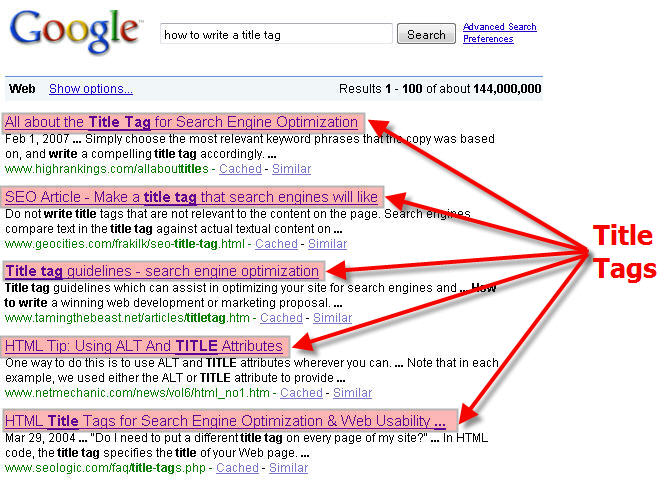Recently Google came out again and emphasized the important of page titles in search results. As they pointed out, they are the first line of any search result and part of the actual links to click on. We already knew this, right? Why did Google decide to inform us again when you’d think that all webmasters, and especially marketers are very aware that a page title is the most important part of SEO?
It’s simple: despite what we should now, many marketers focus on other things and ignore the importance of titles not only in SEO, but in actually getting people to click on the link. It’s a call-to-action, and if its boring, not that interesting and doesn’t engage a user, then perhaps that is the difference between lots of clicks and no clicks whatsoever.
For those that need a refresher, here are a few key tips on Titles
1) For most search engines the maximum length of a title tag is between 60-70 characters and if you are over 70 characters, the title will be cut off.
2) Title Tags should reflect the content of EACH page. Don’t use a boiler plate for every page in your site, actually change the title on each page, to show what is new about that page opposed to the other page. This is really important for SEO, because everyone searches differently and one keyword difference could affect traffic.
3) Don’t overstuff keywords. Besides making sites often unreadable, it’s consider spammy and actually will make users ignore your site. It also will cause high bounce rate, and gain Google’s attention as content spamming.
4) Despite what everyone claims, no need to use your company’s name always in all the titles. If you are trying to get attention of users, sometimes using all the characters and not having a site title is better.
5) Put important keywords in front of the title tag. According to several experts, the closer the keyword is in the front of the title




